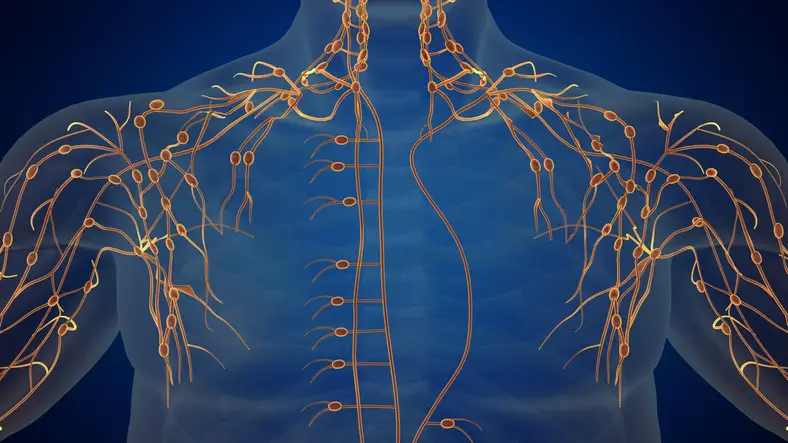Last week, top breast cancer oncologists and researchers attended the 44th Annual San Antonio Breast Cancer Symposium (SABCS), the world’s premier conference for presenting novel breast cancer research. The conference features breakthrough clinical trial results, including promising new approaches to treatment and solutions to current gaps in breast cancer care. We’ve highlighted a few major takeaways from the conference.
Treatment Advancements
New Data on Palbociclib (Ibrance®) in Metastatic HR+, HER2- Breast Cancer
Last week researchers presented data that showed switching from an aromatase inhibitor plus palbociclib to fulvestrant (Faslodex) plus palbociclib doubled time till disease progression or progression-free survival in metastatic HR+, HER2- patients with rising ESR1 mutations. The Phase III PADA-1 trial showed that of these patients, those who switched to fulvestrant had a median progression free survival of 11.9 months as compared to 5.7 months in those who stayed on an aromatase inhibitor. The study also shows that resistance-associated mutations, like ESR1, can be monitored and may be used to identify the optimal time to switch treatments before disease progression occurs.
Potential Benefits of a New Class of Treatments: Selective Estrogen Receptor Degrader (SERDs) in the Treatment of HR+, HER2- Breast Cancer
Many researchers focused on the potential benefit of SERDs in the treatment of HR+, HER2- breast cancer. One study in particular, the Phase III EMERALD study, showed that the SERD, elacestrant, let to a 30% reduction in the risk of disease progression in patients with ER+, HER2- metastatic disease who have progressed on a CDK4/6 inhibitor. When researchers focused on ER+, HER2- metastatic patients with an ESR1 mutation, they saw a 45% reduction in the risk of disease progression. Elecestrant is the first oral SERD to show statistically significant and clinically meaningful reduction in risk of disease progression in this population. The results show that the SERD, elecestrant, could be a new treatment option for ER+, HER2- metastatic breast cancer. There are many more ongoing studies evaluating SERDs in breast cancer treatment, including in the preoperative and adjuvant setting.
Datopotamab Derextecan as Potential New Treatment for Advanced Triple Negative Breast Cancer
Promising results for patients with advanced/metastatic triple-negative breast cancer (TNBC) that have had previous treatment were seen in a Phase I trial with Datopotamab deruxtecan (Dato-DXd). The TROPION-PanTumor01 trial (NCT03401385) released results showing that out of the 44 patients in the TNBC cohort, disease control rate (DCR) was 77%, with an overall response rate (ORR) by blinded independent central review (BICR) of 34% at a median follow-up of 7.6 months. Also seen was a DCR of 81% at a median follow-up time of 8.8 months.
The safety profile of Dato-DXd showed that the most frequent treatment related toxicities included nausea, vomiting, fatigue, and stomatitis (painful swelling and sores inside the mouth). The majority of patients enrolled in the trial had at least 1 treatment related toxicity. Dose reductions were needed in 18% of patients, no fatal toxicity related events were reported.
Dato-DXd is a TROP2-directed antibody-drug conjugate that has also shown encouraging results in those patients with non-small cell lung cancer (NSCLC) (Meric-Bernstam, ASCO 2021) and is being evaluated in in the hormone positive, HER2-negative cohort of the TROPION-PanTumor01 trial. The BEGONIA trial (NCT03742102) is a phase 1b/2 trial evaluating the combination of Dato-DXd with durvalumab (Imfinzi®) as a first line treatment for those diagnosed with TNBC.
Patients with Mucinous Carcinoma of the Breast See Benefit of Radiation After Breast-Conserving Surgery
Mucinous Carcinoma is a rare form of breast cancer. About 5% of invasive breast cancers have mucinous components. The impact of radiation in this subgroup has not been thoroughly studied. Data presented at the conference showed that the overall 10 year survival rate of those who had radiation therapy was 73% compared to 41% for those who did not. Postoperative radiation therapy seems to improve overall survival in patients with mucinous carcinoma and should continue to be the standard of care.
Palbociclib Shows Efficacy in Black and Hispanic Patients
Approximately 10% of the patients in the trials that lead to the approval of palbociclib were black or Hispanic. This underrepresentation led researchers to review palbociclib’s efficacy and safety data specifically in black and Hispanic patients. The data showed that outcomes in black and Hispanic populations taking palbociclib plus endocrine therapy were consistent with the overall study. The median overall survival for patients who took palbociclib plus endocrine therapy was 35 months in the study population and was 36 months in the black and Hispanic populations. The safety data was also similar in the black and Hispanic population compared to the overall population. While this data supports the continued use of palbociclib in HR+, HER2- advanced black and Hispanic patients, their minimal representation in the trials that lead to palbocilib’s approval highlights the issue of underrepresentation of minorities in clinical trials.
Quality of Life
Adding Olaparib to Adjuvant Treatment Does Not Significantly Affect Quality of Life
Adding 1 year of adjuvant Olaparib following pre surgery chemotherapy in patients with BRCA1/2 mutations and high-risk early stage HER2- cancer was previously shown to increase disease free survival. A recent study looked into how the addition of olaparib can affect quality of life. The data shows that patients taking olaparib have more severe fatigue, nausea and vomiting during the 12 months after neoadjuvant treatment compared to those who did not take olaparib, but no meaningful difference in side effects after 18 months. Overall, the quality of life scores were similar between patients receiving olaparib and those who did not.
Cancer Care During COVID-19
COVID-19 Vaccination-Related Lymphadenopathy Should Delay Imaging
Guidelines currently suggest that breast cancer patients should delay imaging by at least 6 weeks after receiving COVID-19 vaccination because vaccination can cause enlarged lymph nodes which can be indistinguishable from malignant nodal involvement. Researchers conducted a prospective study with healthy women to determine how long it takes people to recover from vaccination-related lymphadenopathy. 50% of participants experienced lymphadenopathy on the same side that they received the injection and 10% experienced lymphadenopathy on the opposite side. At 6 weeks 48% of participants still had lymphadenopathy on the same side they received the injection. After 12 weeks, only 6% of participants still experienced lymphadenopathy. Based on this data, the researchers recommend that non-urgent imaging be delayed by 12 weeks post vaccination, instead of 6 weeks.
Nutrition
Nitrates from Food Additives May be Associated with Breast Cancer Risk
A study with 101,056 adults, 966 of whom were diagnosed with breast cancer, looked at the association between diets high in nitrates and cancer risk. Nitrates occur naturally in drinking water and other foods, but they are also added to certain meat products, like ham, bacon and deli meats, to increase their shelf life. Researchers found that people with a high level of added nitrates in their diet had a 24% higher risk of breast cancer than those who did not consume nitrates from food additives. These results need to be confirmed through larger studies.
Patient Education
Benefit of Psychoeducational Cancer Support Program for Caregivers
One initiative focused on the psychosocial effects of metastatic breast cancer for the patient and their caregivers. Researchers assessed caregiver’s experiences before and after they participated in a cancer support workshop which included information about current treatments, side-effect management, and social and emotional challenges of an advanced breast cancer diagnosis. 92% of caregivers said they felt better prepared to emotionally cope with their metastatic breast cancer caregiving experience because of the workshop and 79% said they gained confidence to participate in treatment decision-making with their loved one’s health team. The study suggests that supportive services are highly important in meeting the emotional needs of caregivers.
Massachusetts General Cancer Center and Outcomes4MeTM Joint Study Points to Need for Improved Patient Education and Medical Record Access
Outcomes4MeTM presented research from a recent study conducted at Massachusetts General Cancer Center comparing patient reported disease characteristics within the Outcomes4Me app and data in the medical record. The study shows important discrepancies between the medical record and patient self-reported information, shining a light on the need for better patient education and medical records access. The data showed that while 97% of patients said they understood their diagnosis, up to 24% of patients answered “I don’t know” or “I’m not sure” to fundamental questions about their disease characteristics. According to Maya R. Said, Sc. D., founder and CEO of Outcomes4MeTM, “There is no doubt that the inaccuracies found in self-reporting suggest a need for improved patient education regarding key cancer characteristics. These findings underscore a problem that all stakeholders here at the SABCS – practicing providers and researchers – involved in breast cancer need to have top of mind. The burden of improving patients’ understanding of breast cancer should not be on the patient alone.”
If you are looking for more support, resources, or have additional questions, submit your question using the “+” button on the 4Me tab and clicking on “Ask Outcomes4Me” in the Outcomes4Me app. Our O4ME clinical care team will do their best to help you find an answer.
References
Delaloge S, Hardy-Bessard A, Bachelot T, et al. First line aromatase inhibitor (AI) + palbociclib with randomized switch to fulvestrant + palbociclib upon detection of circulating ESR1 mutation in HR+ HER2- metastatic breast cancer patients: Global safety results of PADA-1, a UCBG-GINECO phase III trial. Presented at: 2021 San Antonio Breast Cancer Symposium; December 7-10, 2021; San Antonio, TX. Abstract GS-05.
Bardia A. Elacestrant, an oral selective estrogen receptor degrader (SERD), vs investigator’s choice of endocrine monotherapy for ER+/HER2-advanced/metastatic breast cancer (mBC) following progression on prior endocrine and CDK4/6 inhibitor therapy: Results of EMERALD phase 3 trial. Presented at: 2021 San Antonio Breast Cancer Symposium; December 7-10, 2021; San Antonio, TX. Abstract GS2-02.
Krop I, Juric D, Shimizu T, et al. Datopotamab deruxtecan (Dato-DXd) in advanced/metastatic HER2 negative breast cancer: triple negative breast cancer results from the phase 1 TROPION-PanTumor01 study. Presented at: 2021 San Antonio Breast Cancer Symposium; December 7-10, 2021; San Antonio, TX. Abstract GS1-05.`
Schmid P, Nunes AT, Dry H, et al. BEGONIA: phase 1b/2, open-label, platform study of the safety and efficacy of durvalumab (D) ± paclitaxel (P) with novel oncology therapies for first-line metastatic triple-negative breast cancer (mTNBC): Addition of arm 7, D + datopotamab deruxtecan (Dato-DXd; DS-1062). J Clin Oncol. 2021;39(15_suppl). doi:10.1200/JCO.2021.39.15_suppl.TPS1105
Yoh K, Goto Y, Thomas M, et al. A randomized, phase 3 study of datopotamab deruxtecan (Dato-DXd; DS-1062) versus docetaxel in previously treated advanced or metastatic non-small cell lung cancer (NSCLC) without actionable genomic alterations (TROPION-Lung01). J Clin Oncol. 2021;39(15_suppl). doi:10.1200/JCO.2021.39.15_suppl.TPS9127
Chevli N, Wang K, Haque W, et al. Prognostic impact of radiation therapy in mucinous carcinoma of the breast. Presented at: San Antonio Breast Cancer Symposium. December 7-10, 2021. San Antonio, TX. Abstract P3-19-15.
“IDC Type: Mucinous Carcinoma of the Breast.” Breastcancer.org, 21 Jan. 2020, https://www.breastcancer.org/symptoms/types/mucinous.
Isaacs C, Mahtini R, Lynce F, et al. Efficacy and safety of palbociclib plus endocrine therapy in Black and Hispanic patients with hormone receptor positive/human epidermal growth factor receptor 2-negative advanced breast cancer (HR+/HER2- ABC) participating in the PALOMA trials. Presented at: San Antonio Breast Cancer Symposium. December 7-10, 2021. San Antonio, TX. Abstract P1-18-13.
Ganz P, Bandos H, Spanic T, et al. Quality of life results from OlympiA: A phase III, multicenter, randomized, placebo-controlled trial of adjuvant olaparib after (neo)-adjuvant chemotherapy in patients with germline BRCA1/2 mutations and high-risk HER-2 negative early breast cancer. Presented at: 2021 San Antonio Breast Cancer Symposium; December 7-10, 2021; San Antonio, TX. Abstract GS4-09.
Kida K, Tsunoda H, Kasahara R, et al. Prospective ultrasonographic surveillance study for incidence and recovery period of COVID-19 vaccination-related axillary lymphadenopathy. Presented at: San Antonio Breast Cancer Symposium. December 7-10, 2021. San Antonio, TX. Abstract P1-01-01.
Chazelas E, Pierre F, Druesne-Pecollo N, et al. Breast and prostate cancer risk associated with nitrites and nitrates from food additives: Results from the NutriNet-Santé cohort. Presented at: 2021 San Antonio Breast Cancer Symposium; December 7-10, 2021; San Antonio, TX. Abstract P1-09-01.
Saxton C, Fearnley K, Gonzalo MB, et al. Metastatic breast cancer caregiver participation in a psychoeducational cancer support program: Results from the frankly speaking about cancer: Metastatic breast cancer evidence-based educational workshops. Presented at: 2021 San Antonio Breast Cancer Symposium; December 7-10, 2021; San Antonio, TX. Abstract P3-17-01.
Isakoff SJ, Glieberman E, Said MR, et al. Accuracy of Patient Self-Reported Breast Cancer Disease Characteristics Compared to the Medical Record in a Trial of the Outcomes4MeTM Digital Health App. Presented at: 2021 San Antonio Breast Cancer Symposium; December 7-10, 2021; San Antonio, TX. Abstract P4-12-08.
Cancer care guidance for every step of your journey
Get treatment options, clinical trials, and support tailored to your diagnosis--all in one place.
Get started
See treatment options, manage symptoms, and stay informed—all in the app
View treatment options and trials personalized to your diagnosis—plus track progress in real time.
Continue in app
Evidence-based guidance powered by NCCN Guidelines®
Personalized treatment plans shaped by the latest oncology standards—tailored to your diagnosis.
Get started
View your personalized treatment plan in the Outcomes4Me app
Use your diagnosis to unlock personalized NCCN Guidelines®-aligned recommendations.
Continue in app
Personalized support for real care decisions
Understand your diagnosis, explore clinical trials, and track symptoms--all in one place.
Get started
Compare treatments, prepare for appointments, and track side effects—all in the app
Built for your diagnosis, Outcomes4Me gives you the tools to make confident, informed decisions—right when you need them.
Continue in app






